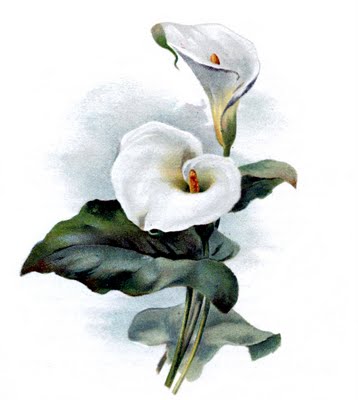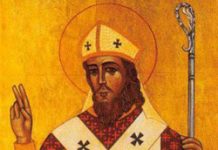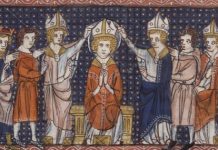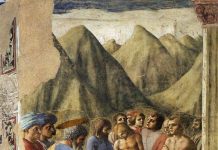My husband’s granny passed away last week—suddenly, from a brain aneurism. She had her bath (she would be mortified I told you that) and went to her room. We are told that she laid herself down on the bed and never got up again. She was such a feisty woman I don’t think she could have passed any other way—no shilly-shallying around, she just up and died, God rest her soul. I am happy for her but I am sad for myself and everyone else that will miss her warmth, her fierce femininity, and her scrabble-playing abilities. Granny loved the Lord. She was the type of woman who wrote “My most prized possession” in her prayer books. She was the type of woman who loved her kids and grandkids no matter where they were or what they were doing, but wore out her knees praying for them in true St. Monica style. And she was the type of woman that brought her friends and family to God by caring, deeply, for each of them personally and always having a kind word and a warm hug for them—making everyone feel like the most important person in the world.
Bewildering, isn’t it—this death thing? One moment a person is here and the next they are just not. Somehow the spirit leaves and flies somewhere not here, and we are left with the cold, hard reality of absence. That person IS no longer—at least, IS not like they were before. This loved one, all of a sudden, does not formulate her own thoughts. Her body does not communicate or hug us. There are no more late night heart-to-hearts or roast marshmallows or shared sunrises. The person is just “gone.” Some bio-mechanical process flakes out and my world changes. It’s mysterious, depressing, and exquisitely painful, most especially if the deceased is someone whom we have grown close to over the years.
Death is scary for us sensory-and-science-dependant humans, not only because of the void a person leaves when they die, but also because there is no way to be scientifically certain of what has happened to our loved ones (or ourselves) after they have died. You can never know, unless—you die. And there is no going back once you have bought the farm. You see the catch-22 we’ve got going on here?
But death is an absolute certainty for each one of us. We are all slated to die, and some sooner than others. Nobody is exempt and whether you are ready for it or not, death comes for you, tapping you on the shoulder sometimes when you least expect it. There is no getting around it or sweet-talking ourselves out of it. There is only, as I heard a preacher say once, “kissing it on the lips.”
For the Christian, death is not the end. In death, life is merely changed. We have steady faith and a firm hope that our souls will live on forever and that at the resurrection of the dead, even our bodies will be reunited with our souls once more. And we trust that, if we have been faithful to God, we will live on with him and with all the saints, our friends, family, and even our mothers-in-law, in perfect contentment for all eternity. Death then, for the Christian, is not so bewildering or scary. It is hopeful rather than depressing. And not only can the deceased rest in peace, but so can we. Because that is what Christ’s crucifixion and death won for us: the hope and promise of a glorious eternal life—and that’s something we can hang our hat on. We can, in other words, “kiss death on the lips” and rest easy.
I wept at Granny’s funeral, partly because I will miss her, but mostly because of the astounding reality of God’s love for us all. Each of us, me included, are destined to see his face and live with him for ever. Granny understands all of that now, and if she had any doubts during her life, she doubts no longer. She does not suffer with pain or fear anymore, and even death holds no more sway over her. Rather she has hopefully joined the choirs of angels and saints that joyfully sing of God’s glory for all eternity—of which I hope also includes my two grandfathers, my maternal grandmother, and countless ages of ancestors I have never met or even heard about. They have all died in order to be born unto eternal life, and hopefully someday, I will be blessed enough to be numbered among them.
At the moment of my death I shall see and faith will become a reality! That is why it will disappear! For there will be no need to speculate in any way. The folded wings will unfold and I shall shout, Allelu! Allelu! Allelu! I know what death is… On death I shall burst open, as it were, as a ripe fruit… and the reality of the Triune God, especially Christ, will be mine. And I will know that death is life, because Christ conquered it. And somewhere on the side, the Mother of man who is also the Mother of God, and who long ago woke up from her sleep, will put out her hand and say, “You see where dispossession brought you? It brought you to the possession of the Trinity, of Love.” (Catherine Doherty, Mass Preparation, 14 August 1972)











